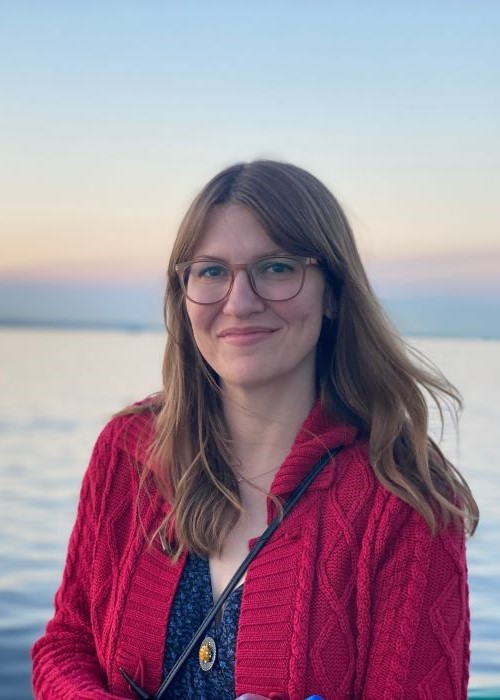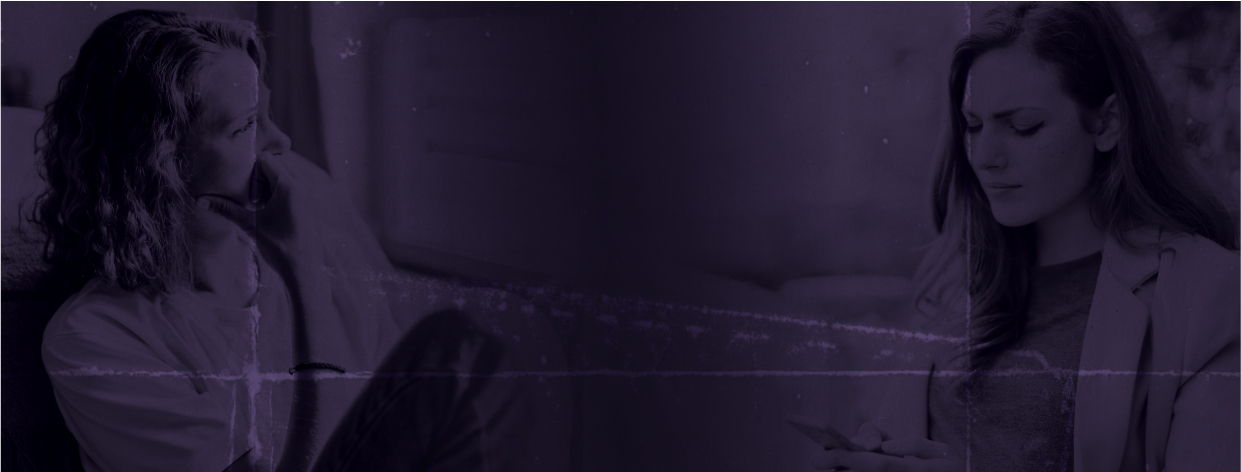Leslie Boyce wanted to help people. She didn’t think that would make her a target.
“I wanted to be a resource to help people work through sort of normal and abnormal life challenges that we all come across,” she told IW Features. “I just had this real empathy for people’s difficulties in life.”
After becoming a mom at 19 and earning her psychology degree later in life, Boyce enrolled in a counseling master’s program at Antioch University Seattle in 2019. Her goal was simple: become the kind of therapist her own mother––who grew up in the foster care system and who is a survivor of childhood sexual abuse––never had.
But her program didn’t seem to care about producing such therapists. What she found instead was an ideologically charged institution more interested in identity checkboxes than clinical ethics.
From day one, Boyce said she could feel the tension.
“We were asked in the group interview to give our pronouns when we introduced ourselves,” she recalled, explaining how taken aback she was by the ritual. “I didn’t know how to get out of it. I felt very put on the spot. I hadn’t thought of strategies for deflecting, and I also knew that the way I responded in this situation was going to make or break my chances of getting into the program.”
Reluctantly, she went along with it––once. But it wouldn’t be the last time her discomfort with the program’s politics put a target on her back.
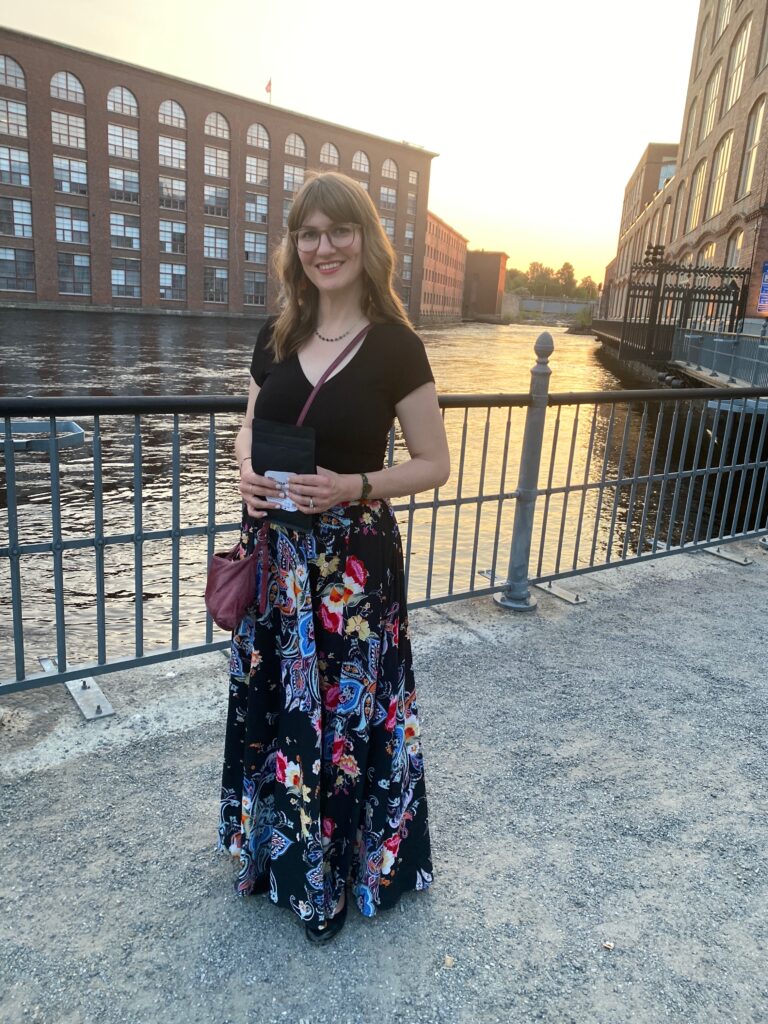
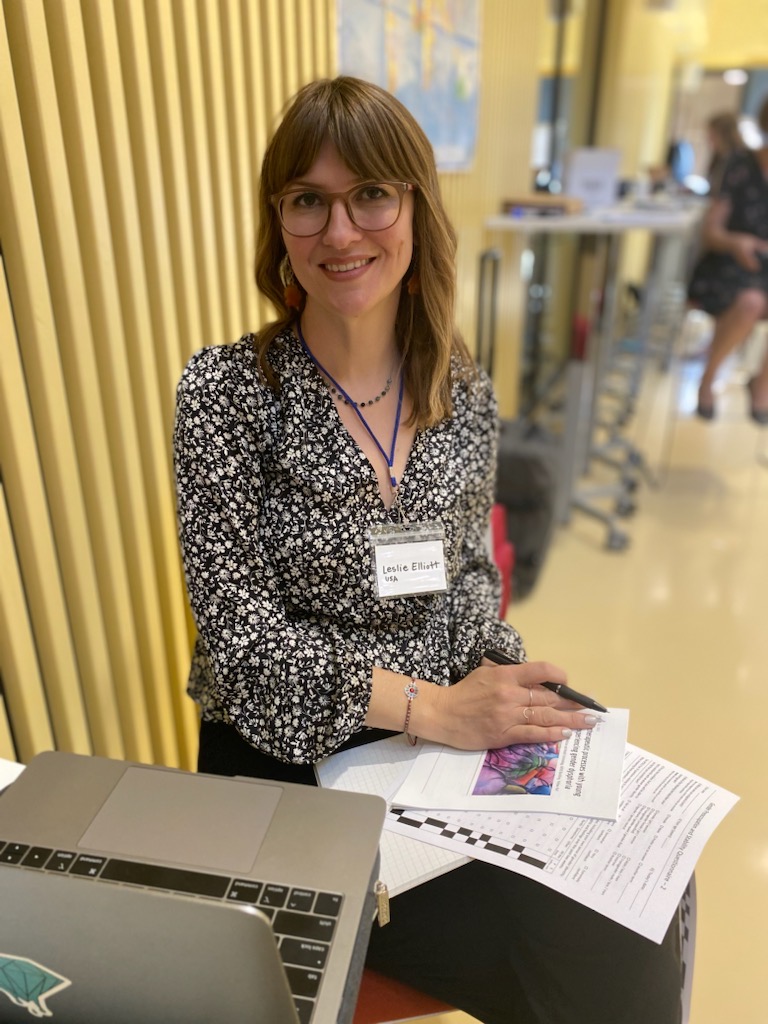
Things escalated when Boyce enrolled in a required “Multicultural Perspectives” class, she explained. Her professor introduced an oppression matrix called ADDRESSING, where students had to tally their race, religion, sexual orientation, and more to determine who held “privilege” in any counselor-client setting. Boyce recalled feeling “perpetually stunned” that this was going on in a graduate-level course.
“This flies in the face of everything about psychology,” she said. “You basically give yourself a status of oppressor or oppressed for each of these demographic categories.”
When she raised concerns about the course material––respectfully, in private course journals––Boyce said her professor lashed out in class directly at her.
“She told me I needed to reparent myself so that I wouldn’t be a danger to my minority clients,” Boyce recalled.
When Boyce challenged the materials again, she said her professor cried in front of the class, claiming emotional distress. A fellow student identifying as a “transgender woman” cut her off, saying, “I think we’ve heard enough white voices for today” [paraphrase].
“That person was also white,” Boyce pointed out.
By the end of the course, Boyce’s professor gave her a failing narrative evaluation on her permanent academic record and essentially diagnosed her with a mental health condition. According to Boyce, the professor wrote that she needed therapy to address her “racial issues.”
Boyce said she tried to file a grievance, but the administration offered no real redress. Instead, her department thrust her into a carousel of meetings with the very professor who had attacked her. So, Boyce, eager to finish her degree, transferred to the university’s online New England campus, hoping for a better experience. But the ideology followed her there, too.
In a required class on trauma and grief, Boyce said the first assignment wasn’t even academic. All students had to fill out a loyalty pledge.
“You had to attest that you agreed to this social justice pledge about intersectional identities and privilege and oppression,” she said. “I couldn’t sign it.”
Her advisor allegedly told her to lie and sign it anyway, telling Boyce she needed to “just get through the program as quickly as possible because it’s only going to get more intense.”
Then came a curveball, Boyce recalled. A processor allegedly told her, “We are aware that we are no longer training counselors who are able to work with a Trump supporter” [paraphrase].
Boyce wasn’t even a Trump voter. But the implications were clear to her: Deviate from dogma, and you’re deemed unfit to practice.
Then, Boyce discovered that a former professor had accessed and shared her confidential student journals––some of which included personal stories of domestic violence––so she filed another grievance. This breach of confidentiality concerned Boyce, yet the university found no wrongdoing upon their investigation. Boyce had had enough.
She took to social media, creating a short video on YouTube where she calmly outlined her concerns about bias and politicization in the mental health field. The school’s response?
“They put out a memo to everybody that I was a white supremacist and a transphobic person,” Boyce said. “They opened a 24-hour crisis line to help people who had been hurt by my words.”
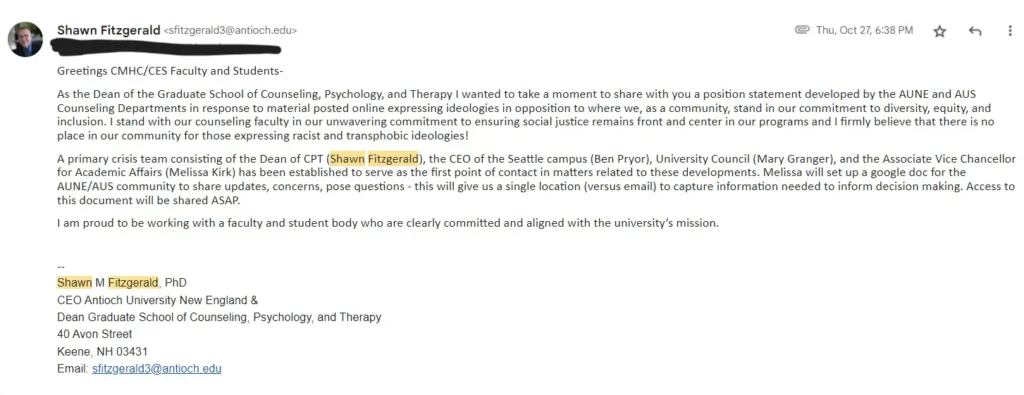
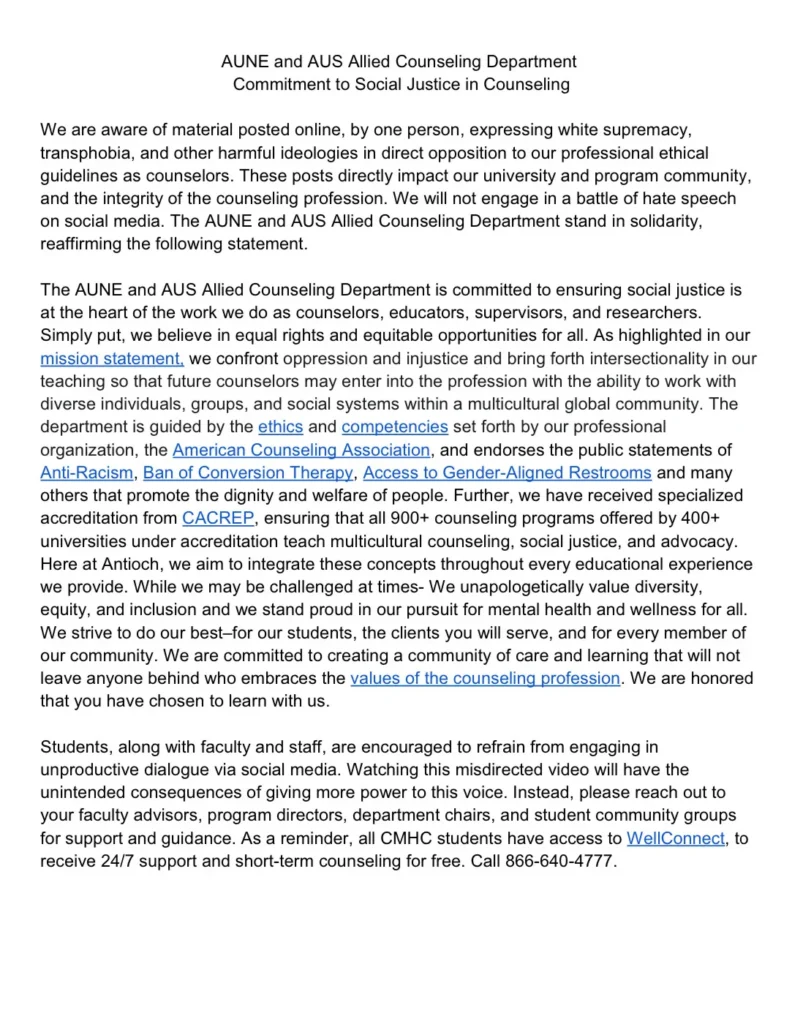
The retaliation continued, Boyce explained. Her student account was shut down. She couldn’t access syllabi, financial records, or even confirm if she was still enrolled.
“I had just a couple credits that I needed, and I was locked out, so I didn’t graduate,” Boyce said.
By 2021, Boyce had taken the reins on her career path despite being intentionally edged out of her intended future. While the legacy institutions shut her out, Boyce said she received an outpouring of support from colleagues in the counseling field similarly fearful but stuck self-censoring.
She launched a private coaching practice with no need for certification by a woke institution, just her own merits rooted in compassion and ethics. Thankfully, she found she wasn’t alone.
Boyce said she started receiving requests almost immediately from people eager to discuss their own similar experiences, so she initiated a process of conducting Zoom calls with them, obtaining their consent to record, and interviewing other professionals about their experiences in the belly of the ideological beast.
Today, Boyce continues to work with groups like the Open Therapy Institute (OTI) and Critical Therapy Antidote, which support practitioners concerned about the politicization of care. She facilitates CE-credit workshops and member consultation groups at OTI; provides peer support for people impacted by authoritarian ideologies at Solid Ground; and has helped organize conferences for the Society for Evidence-Based Gender Medicine.
In her eyes, there may not be a way to reverse the damage done to legacy institutions soon enough, but there is a positive side to this, in that there are now vast opportunities for practitioners like her to “think creatively and move outside of them.”
“We have a great, great need right now for parallel institutions to form up,” she said. “There’s really good work that can be done outside of that pseudo-medical construct.”
Boyce’s message to others who feel pushed out of their own profession over politics is simple: “Don’t lose hope. Find people that you can talk with and consult with. There are ways to help people outside of that box.”
The system may have tried to cancel her, but Boyce has proven it can’t take away her voice.
“They shut me out,” she said. “But I didn’t shut up.”


